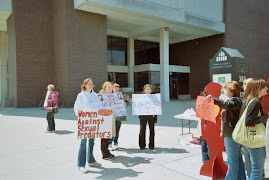Registered Sex Offender in the Neighborhood
By Geoff Steurer, MS, LMFT Licensed Marriage and Family Therapist
Question:My question concerns registered sex offenders. We just had one move into our neighborhood which has tons of young kids in it. There are actually children in the home of the sex offender. He is the grandpa.How should this be handled? We recognize his needs, but are also concerned about the safety of the neighborhood children. It is difficult, too, for the children in the home. They are welcome to play at the neighbors, but neighbors' children aren't allowed in the home of the offender. Thanks for any insights and suggestions.
Answer:Protecting children from sexual offenders is on the mind of virtually every parent these days. Your question not only asks what can be done to protect your children and their friends from a sexual offender, but also asks how to help his grandchildren who could also be at risk.
I will talk about what we know about how to protect children from potential abusers and then make some suggestions about the possible threat to your neighbor’s grandchildren.
First, it’s important to understand that the majority of children who are sexually abused by an adult typically have an established relationship of trust with the perpetrator. Although abuse by strangers is a disturbing reality, it’s more likely to happen with someone the child already knows and trusts.While it is impossible to protect children from all forms of sexual predation, there are ways to head off a potential situation. Anna Salter, author of “Predators: Who they are, how they operate, and how we can protect ourselves and our children,” recommends that parents adopt two strategies for increasing the protection of children from sexual offenders.
Our most effective strategy is deflection. This strategy is based on the idea that parents simply make it difficult for a sexual offender to have access to their children.
Salter writes, “It is a slider, this business of protecting our children. On the one extreme there would be few opportunities for our children but few opportunities for pedophiles as well. On the other extreme, there would be many opportunities for our children and many also for child molesters. Where you set the slider will determine how many opportunities your children have and how many molesters have.”
Even though parents can’t always be with their children, they can certainly create a presence in their children’s lives, both physically and emotionally. There may even come a point at which children don’t want their parents around anymore, but parents can still maintain an awareness and involvement that can create a level of deflection from a potential predator.
The level of involvement by a parent is a highly personal choice that no expert or book can dictate.Another strategy is detection, which is based on a parent’s ability to figure out who is an offender and who isn’t.
Unfortunately, this is difficult to detect with any degree of accuracy. It is virtually impossible to detect who will perpetrate on your child because most sexual offenders are often viewed by others as “nice people.”
However, there might be suspicious signs such as an individual who takes an unusual interest in your child, your child not wanting to spend time with a certain adult, or inconsistent verbal or facial expressions that trigger mistrust.
One aspect of detection that is often overlooked is your child’s observed or reported discomfort with another person. If your child ever expresses any discomfort or disinterest about spending time with someone, it’s important to take them seriously and create a safe context where they can discuss their concerns.
If they report behaviors that appear to be inappropriate, it’s critical that you believe them and take immediate action to prevent further contact.
Regarding the children who live with their sexual offender grandfather, here are a few ideas for you to consider. First, you can gather information from www.familywatchdog.us to learn about the neighbor’s criminal record. You may discover more information about the offender’s record that could affect what other steps you choose to take.
I’m aware of situations where concerned neighbors have respectfully approached a registered sex offender in their neighborhood to talk about their concerns for the safety of the children in the neighborhood.
Sometimes it leads to effective discussions on how to appropriately supervise and protect children. Other times, it produces no results. Either way, it accomplishes the purpose of deflection. It sends the message that there are concerned citizens who want to protect children. It’s a message that’s difficult to misunderstand.
I would encourage you to allow all of the neighborhood children to play in a common area under adult supervision. As long as children are allowed to be children and interact appropriately with others, it’s in everyone’s best interest to let them gather as neighborhood friends.
If the children living with the registered sex offender are in danger, you can only hope that they will feel safe enough with you or another neighbor to disclose any abuse so you can report it to the authorities.
Your willingness to educate yourself and your other neighbors about how to keep the neighborhood children safe through detection and deflection is a proactive and healthy response to your concerns.
Hungry Wolves
-
This world really is sick and diluted with power hungry wolves who devour
any thing in their path.
As I look for the outcome of so many missing Childre...
3 years ago



No comments:
Post a Comment